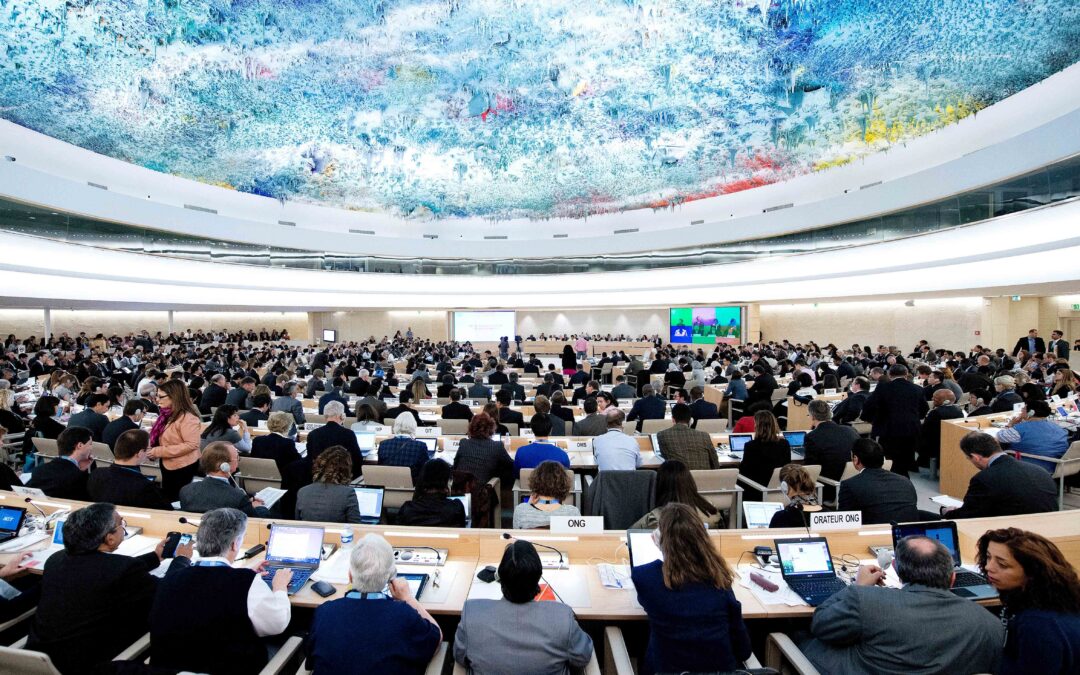
Jul 12, 2019 | Advocacy, Non-legal submissions
The ICJ joined other NGOs in an end-of-session statement, highlighting the achievements and shortfalls of the 41st Ordinary Session of the UN Human Rights Council, 24 June – 12 July 2019.
The statement, delivered by International Service for Human Rights (ISHR), reads as follows:
By renewing the mandate of the Independent Expert on protection against violence and discrimination based on sexual orientation and gender identity (SOGI), the Council has sent a clear message that violence and discrimination against people of diverse sexual orientations and gender identities cannot be tolerated. It reaffirmed that specific, sustained and systematic attention is needed to address these human rights violations and ensure that LGBT people can live a life of dignity. We welcome the Core Group’s commitment to engage in dialogue with all States, resulting in 50 original co-sponsors across all regions. However, we regret that some States have again attempted to prevent the Council from addressing discrimination and violence on the basis of SOGI.
The Council session also sent a clear message that Council membership comes with scrutiny by addressing the situations of Eritrea, the Philippines, China, Saudi Arabia and the Democratic Republic of Congo. This shows the potential the Council has to leverage its membership to become more effective and responsive to rights holders and victims.
The Council did the right thing by extending its monitoring of the situation in Eritrea. The onus is on the Eritrean Government to cooperate with Council mechanisms, including the Special Rapporteur, in line with its membership obligations.
We welcome the first Council resolution on the Philippines as an important first step towards justice and accountability. We urge the Council to closely follow this situation and be ready to follow up with additional action, if the situation does not improve or deteriorates further. We deeply regret that such a resolution was necessary, due to the continuation of serious violations and repeated refusal of the Philippines – despite its membership of the Council– to cooperate with existing mechanisms.
We deplore that Council members, such as the Philippines and Eritrea, sought to use their seats in this Council to seek to shield themselves from scrutiny, and those States[1] who stand with the authorities and perpetrators who continue to commit grave violations with impunity, rather than with the victims.
We welcome the written statement by 22 States on China expressing collective concern over widespread surveillance, restrictions to freedoms of religion and movement, and large-scale arbitrary detention of Uyghurs and other minorities in Xinjiang. We consider it as a first step towards sustained Council attention and in the absence of progress look to those governments that have signed this letter to follow up at the September session with a resolution calling for China to allow access to the region to independent human rights experts and to end country-wide the arbitrary detention of individuals based on their religious beliefs or political opinions.
We welcome the progress made in resolutions on the rights of women and girls: violence against women and girls in the world of work, on discrimination against women and girls and on the consequences of child, early and forced marriage. We particularly welcome the renewal of the mandate of the Working Group on Discrimination Against Women and Girls under its new name and mandate to focus on the intersections of gender and age and their impact on girls. The Council showed that it was willing to stand up to the global backlash against the rights of women and girls by ensuring that these resolutions reflect the current international legal framework and to resist cultural relativism, despite several amendments put forward to try and weaken the strong content of these resolutions.
However, in the text on the contribution of development to the enjoyment of all human rights, long standing consensus language from the Vienna Declaration for Programme of Action (VDPA) recognising that, at the same time, “the lack of development may not be invoked to justify the abridgement of internationally recognized human rights” has again been deliberately excluded disturbing the careful balance established and maintained for several decades on this issue.
We welcome the continuous engagement of the Council in addressing the threat posed by climate change to human rights, through its annual resolution and the panel discussion on women’s rights and climate change at this session. We call on the Council to continue to strengthen its work on this issue, given its increasing urgency for the protection of all human rights.
The Council has missed an opportunity on Sudan where it could have supported regional efforts and ensured that human rights are not sidelined in the process. We now look to African leadership to ensure that human rights are upheld in the transition. The Council should stand ready to act, including through setting up a full-fledged inquiry into all instances of violence against peaceful protesters and civilians across the country.
During the interactive dialogue with the Special Rapporteur on extrajudicial and summary executions, States heard loud and clear that the time to hold Saudi Arabia accountable is now for the extrajudicial killing of journalist Jamal Khashoggi. We recall that women human rights defenders continue to be arbitrarily detained despite the calls by 36 States at the March session. We urge States to adopt a resolution at the September session to establish a monitoring mechanism over the human rights situation in the country.
We welcome the landmark report of the High Commissioner on the situation for human rights in Venezuela; in response to the grave findings in the report and the absence of any fundamental improvement of the situation in the meantime, we urge the Council to adopt a Commission of Inquiry or similar mechanism in September, to reinforce the ongoing efforts of the High Commissioner and other actors to address the situation.
We welcome the renewal of the mandate on the freedom of peaceful assembly and association. This mandate is at the core of our work as civil society and we trust that the mandate will continue to protect and promote these fundamental freedoms towards a more open civic space.
We welcome the renewal of the mandate of the Special Rapporteur on Belarus. We acknowledge some positive signs of re-engagement in dialogue by Belarus, and an attempted negotiation process with the EU on a potential Item 10 resolution. However, in the absence of systemic human rights reforms in Belarus, the mandate and resolution process remains an essential tool for Belarusian civil society. In addition, there are fears of a spike in violations around upcoming elections and we are pleased that the resolution highlights the need for Belarus to provide safeguards against such an increase.
We welcome the renewal of the quarterly reporting process on the human rights situation in Ukraine. However, we also urge States to think creatively about how best to use this regular mechanism on Ukraine to make better progress on the human rights situation.
The continued delay in the release of the UN database of businesses engaged with Israeli settlements established pursuant to Council resolution 31/36 in March 2016 is of deep concern. We join others including Tunisia speaking on behalf of 65 states and Peru speaking on behalf of 26 States in calling on the High Commissioner to urgently and fully fulfil this mandate as a matter of urgency and on all States to cooperate with all Council mandates, including this one, and without political interference.
Numerous States and stakeholders highlighted the importance of the OHCHR report on Kashmir; while its release only a few days ago meant it did not receive substantive consideration at the present session, we look forward to discussing it in depth at the September session.
Finally, we welcome the principled leadership shown by Belgium, Luxembourg and the Netherlands, in pursuing accountability for individual victims of acts of intimidation and reprisals under General Debate Item 5, contrasting with other States which tend to make only general statements of concern, and call on States to raise all individual cases at the interactive dialogue on reprisals and intimidation in the September session.
(text in italics was not read out due to the limited time)
Signatories:
- International Service for Human Rights (ISHR)
- Amnesty International
- ARTICLE 19
- Asian Forum for Human Rights and Development (FORUM-ASIA)
- Association for Progressive Communications (APC)
- Cairo Institute for Human Rights Studies
- Center for Reproductive Rights
- CIVICUS: World Alliance for Citizen Participation
- DefendDefenders (the East and Horn of Africa Human Rights Defenders Project)
- Franciscans International
- Global Initiative for Economic, Social and Cultural Rights
- Human Rights House Foundation
- Human Rights Watch
- International Commission of Jurists (ICJ)
- International Federation for Human Rights (FIDH)
- International Lesbian and Gay Association (ILGA)
[1] States who voted against the resolution on Eritrea: Bahrain, Burkina Faso, Cameroon, China, Cuba, Egypt, Eritrea, Iraq, India, Saudi Arabia, Somalia, the Philippines and Pakistan.
States who voted against the resolution on the Philippines: Angola, Bahrain, Cameroon, China, Cuba, Egypt, Eritrea, Hungary, Iraq, India, Qatar, Saudi Arabia, Somalia, and the Philippines.
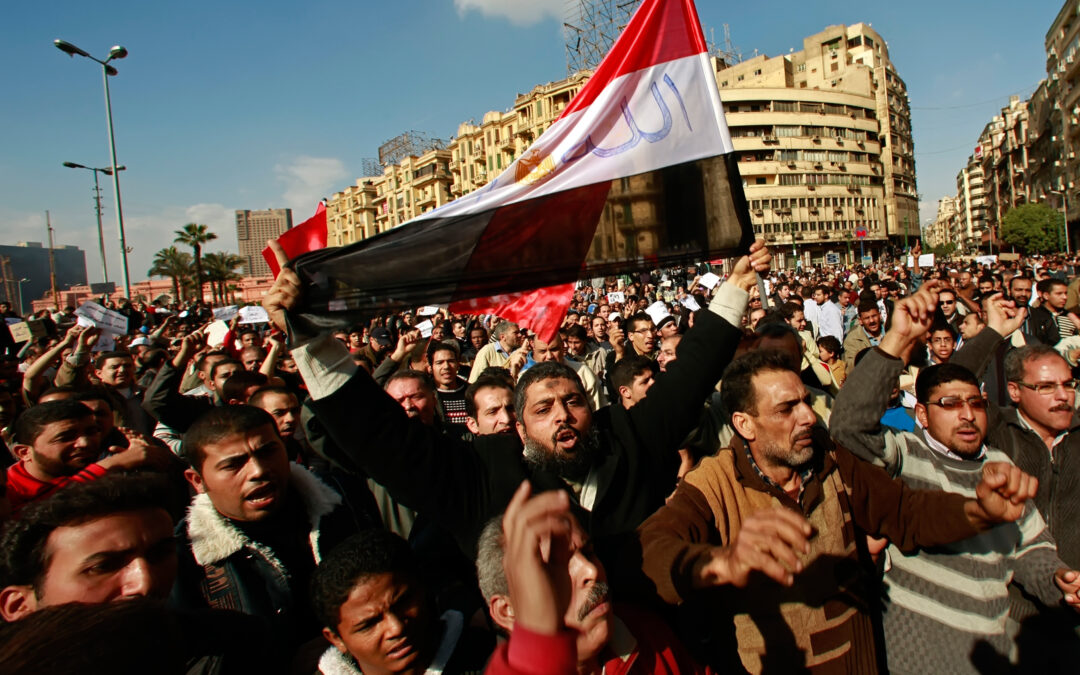
Sep 10, 2018 | News
Today, the ICJ condemned the mass convictions of some 739 defendants, 75 of whom were sentenced to death, by the Cairo Criminal Court, in connection with a sit-in protest at Raba’a Al Adaweyya square in August 2013.
The ICJ deplored that the convictions had followed a grossly unfair trial and called on the Egyptian authorities, including the prosecutorial authorities, to take immediate steps to quash them.
The ICJ said that as an immediate matter the death sentences, issued in contravention of Egypt’s international legal obligations, must be vacated.
In addition to the death sentences, another 658 individuals were sentenced either to life imprisonment or to five to 15 years’ imprisonment, including journalists and others monitoring the sit in, many of them in high security facilities.
The accused were convicted of offences including “killing police officers,” “taking part in an illegal assembly,” “joining an illegal group,” and “vandalism and other acts of violence” following dispersal of a sit-in protest at Raba’a square.
The convictions follow a grossly unfair trial in which rights of the accused to a presumption of innocence and to legal counsel, among others, were violated and many accused were arbitrarily detained.
“The trial, with its industrial-scale convictions and blatant disregard of basic fair trial guarantees, is yet another example of how Egypt’s judiciary is being used by the military and the executive to crush freedom of expression, assembly, and association; silence any and all critical voices, and intimidate witnesses of human rights violations,” said Said Benarbia, Director of the ICJ’s Middle East and North Africa Programme.
The trial was marred by a litany of fair trial violations. A presumption in favour of pre-trial detention was routinely applied.
Of the 739 defendants tried, all 320 arrested were held in pre-trial detention for more than five years, protestors and protest monitors alike.
For example, photo journalist Mahmoud Abu Zeid, known as “Shawkan”, was arrested while covering the Raba’a dispersal and was in pre-trial detention throughout the trial.
The Cairo Criminal Court convicted the defendants without making individual findings of guilt or relying on credible evidence, violating the presumption of innocence.
Four hundred and nineteen defendants were tried in absentia—a number of whom may have been sentenced to death—without the opportunity to mount a meaningful defence.
Charges such as “joining an illegal group” were also blatantly unfounded insofar as they targeted journalists and others reporting on the sit in.
“The convictions are unreliable and ought to be quashed. Those convicted solely for the legitimate and peaceful exercise of their rights to freedom of expression, association and assembly must be immediately and unconditionally released,” added Benarbia.
The ICJ opposes the use of the death penalty in all circumstances as a violation of the right to life and a form of cruel, inhuman and degrading punishment.
It has previously called on Egypt to respect repeated Resolutions by the UN General Assembly for all retentionist States to impose an immediate moratorium on the death penalty with a view to abolition.
Under international standards, proceedings in death penalty cases must conform to the highest standards of judicial independence, competence and impartiality, and must strictly comply with all fair trial rights.
The ICJ previously documented how the Egyptian Judiciary has consistently failed to conform to these standards, and has instead been using the administration of justice as a tool of repression.
The ICJ has underscored that International Covenant on Civil and Political Rights, to which Egypt is a party, protects the rights to liberty, to a fair trial, to life, to freedom of expression, to freedom of assembly, and to an effective remedy against violations of human rights.
The ICJ is particularly concerned that impunity continues to prevail over the gross human rights violations committed by armed and security forces in the course of the dispersal.
In this regard, the UN High Commissioner for Human Rights, Michelle Bachelet noted the contrast between Saturday’s decision and Egypt’s adoption of Law 161(2018) in July, which effectively immunized security forces from prosecution for offences committed between 3 July 2013, the date of the military coup, and January 2016.
The High Commissioner further warned that “justice must apply to all” and that immunizing security personnel by such a law only “promotes impunity, and undermines the faith of the Egyptian people in the Government’s capacity to deliver justice for all.”
“It is a measure of the absolute subordination of the judiciary to the will of the military and executive that not a single person has been held accountable for the unlawful killings of hundreds of protesters, and that those arrested and prosecuted in the context of the dispersal are convicted and sentenced to death and cumulatively thousands of years’ of imprisonment,” Benarbia said.
Egypt-Rabaa Ruling-News-webstory-2018-ENG (full text, PDF)
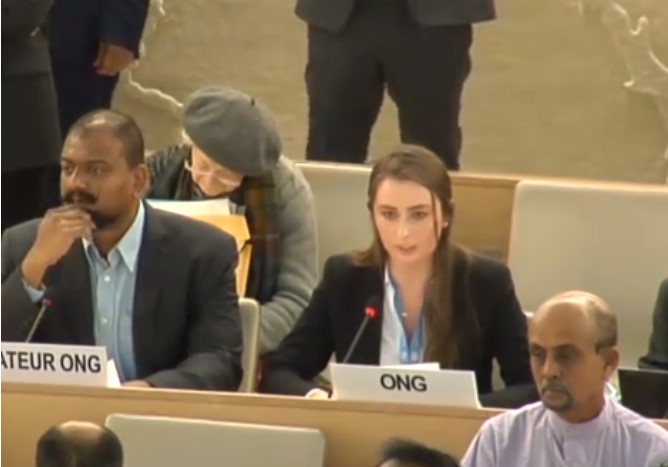
Mar 22, 2018 | Advocacy, Non-legal submissions
The ICJ today highlighted misuses of the law and legal system in Cambodia, in violation of human rights, and called for action by States and international and regional organisations, as well as the Government of Cambodia.
The statement was delivered during a general debate at the UN Human Rights Council, responding to concerns expressed earlier in the session by the UN High Commissioner for Human Rights and in the report of the UN Secretary General. It read as follows:
“The Cambodian Government continues to misuse the law to clamp down on the political opposition, on civil society and on ordinary individuals under the guise of the ‘rule of law’.
In November 2017, the Supreme Court dissolved the main opposition political party and banned 118 of its members from political activity after a politicized hearing in which the President of the Court was himself a high-ranking member of the ruling party.
The main opposition leader, Kem Sokha, remains in detention, under investigation for treason.
A recent Constitutional amendment imposes a broad ‘duty’ on individuals and associations to “uphold the national interest”. A new lèse-majesté law is inconsistent with freedom of expression.
Individuals continue to flee the country in fear for having exercised their fundamental freedoms.
In February, Sam Sokha, a UNHCR-recognized refugee, was deported from Thailand to Cambodia after she was convicted in her absence by a Cambodian court, for throwing a shoe at a ruling party billboard.
With national elections scheduled for July 2018, the Government’s trend of weaponizing the law against its people only seems set to harden.
States, international and regional organisations, and other international actors must heighten efforts to address the rule of law and human rights crisis in Cambodia.”
Video of the statement is available here:
Numerous statements expressing similar concerns about the situation in Cambodia followed by other NGOs. Some of them were interrupted by Cambodia on “points of order” and prevented from fully presenting their criticisms despite their alloted time remaining. The ICJ does not consider that the objections raised by Cambodia were valid and that the speakers should have been able to receive the full allotted time to complete their statements. Video of a final statement by the delegation of Cambodia is available below:
The ICJ statement today follows an earlier joint statement delivered yesterday by New Zealand on behalf of a group of 45 states, which is available to download in PDF format here (NZJointStatementCambodiaHRC37-2018) and to view by video here:
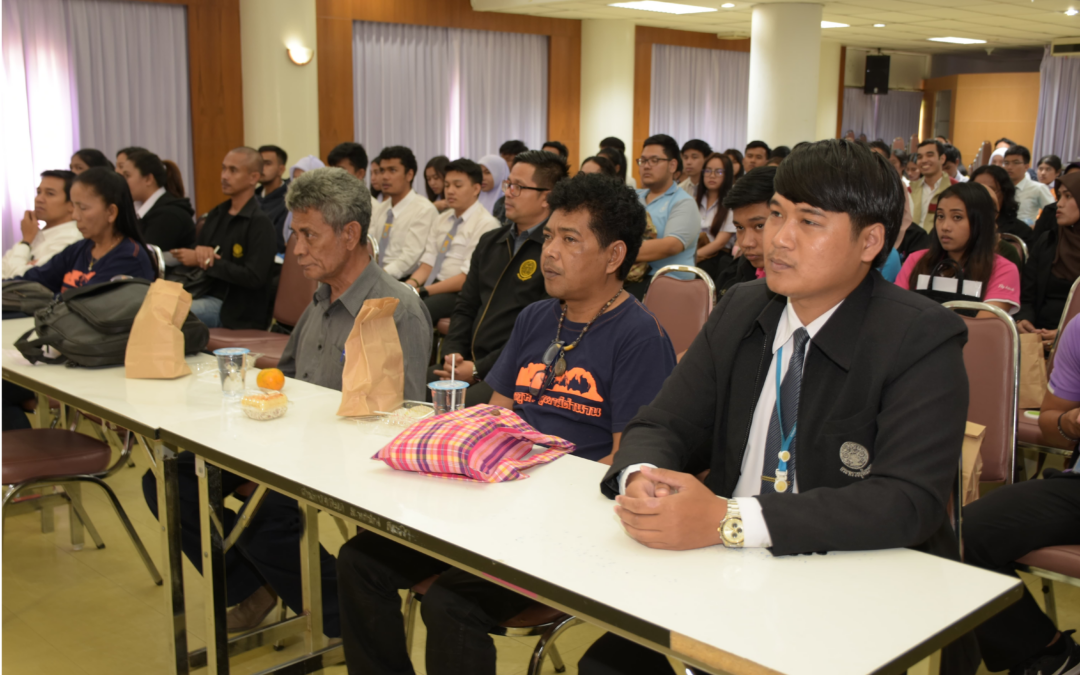
Feb 14, 2018 | News
Today, the ICJ addressed an academic seminar on the topic of “Public interest and the anti-strategic lawsuit against public participation (SLAPP)”.
It was organized by Thaksin University’s Faculty of Law, in collaboration with the Embassy of Canada in Bangkok, the Thai Ministry of Justice’s Justice Office, and the Community Resources Centre Foundation (CRC).
Participants in the seminar, which was held at Thaksin University, included more than 50 undergraduate students and lecturers from Thaksin University, around 20 villagers from affected communities, and approximately 20 justice officers from the Justice Office of Songkhla Province, Ministry of Justice.
Sanhawan Srisod, ICJ National Legal Adviser, delivered an introduction to basic international human rights law on the rights to freedom of expression, association, and peaceful assembly, and Thailand’s international legal obligations in relation to these rights.
Other speakers at the Workshop were Ms. Jantima Thanasawangkul, Special Prosecutor, Department of Legal Aid and Civil Rights Protection, Office of the Attorney General; Ms. Sor.Rattanamanee Polkla, Lawyer, Community Resources Centre Foundation; and Mr. Tawan Puakpong, Justice Office of Songkhla Province, Ministry of Justice.
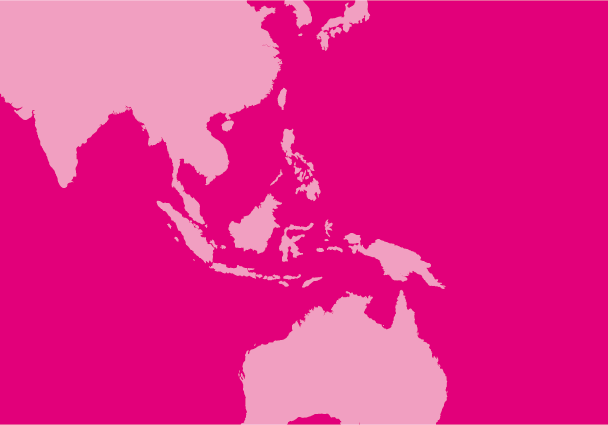
Feb 8, 2018 | News
A proposed new law regulating public assembly adopted by the Philippine House of Representatives would allow for unlawful restrictions on the right to peaceful assembly, the ICJ said today.
On 5 February 2018, the House of Representatives passed on third reading House Bill 6834, which proposes to repeal the Public Assembly Act of 1985.
The law would prohibit persons below the age of 15 from organizing a public assembly and would subject participants or organizers to potential criminal liability for holding a peaceful assembly without the approval of local executives.
“This legislation deceives us into thinking that there is no more need to obtain prior permission to holding a public assembly,” said Emerlynne Gil, ICJ’s Senior International Legal Adviser for Southeast Asia.
“But in effect, organizers will still need to secure the approval of the local executive before holding a public assembly,” she added.
The proposed law states that any person or group intending to organize a public assembly will only need to serve notice to the city or municipal mayor at least three days prior to the assembly without having to secure a permit.
However, at the same time it prohibits the “holding of a public assembly at a time and place other than that approved by the city or municipal mayor.”
“The proposed law does not improve on the old one. It now increases the penalty for holding a public assembly without approval of local authorities to six (6) years,” Emerlynne Gil said.
“The law is also silent as to who may be penalized. Hence, the ICJ fears that organizers and participants alike could be held liable,” she added.
Under international standards, freedom of people to assemble should generally not require prior permission.
The law would also contravene the rights of children that are protected under the Philippines’ legal obligations.
“The provision incorporates into law the arcane and discredited attitude that ‘children should be seen but not be heard’,” said Emerlynne Gil.
“If children are prohibited from organizing a peaceful assembly, this prevents them from exercising their right to impart information freely,” she added.
Under the Convention on the Rights of the Child, children must be guaranteed the right to freedom of assembly.
The bill now goes to the Philippine Senate for its consideration.
The ICJ calls on lawmakers in the Philippines not to adopt the proposed law in its current form.
Any new legislation should conform to international standards, including on the right to freedom of assembly without prior permission and the rights of children to assemble freely, the ICJ adds.
Contact
Emerlynne Gil, Senior International Legal Adviser for Southeast Asia, tel. no. +662 619 8477 (ext. 206); e: emerlynne.gil(a)icj.org
Philippines-Public assembly act 1985-News-Web stories-2018-ENG (Full story in PDF)









